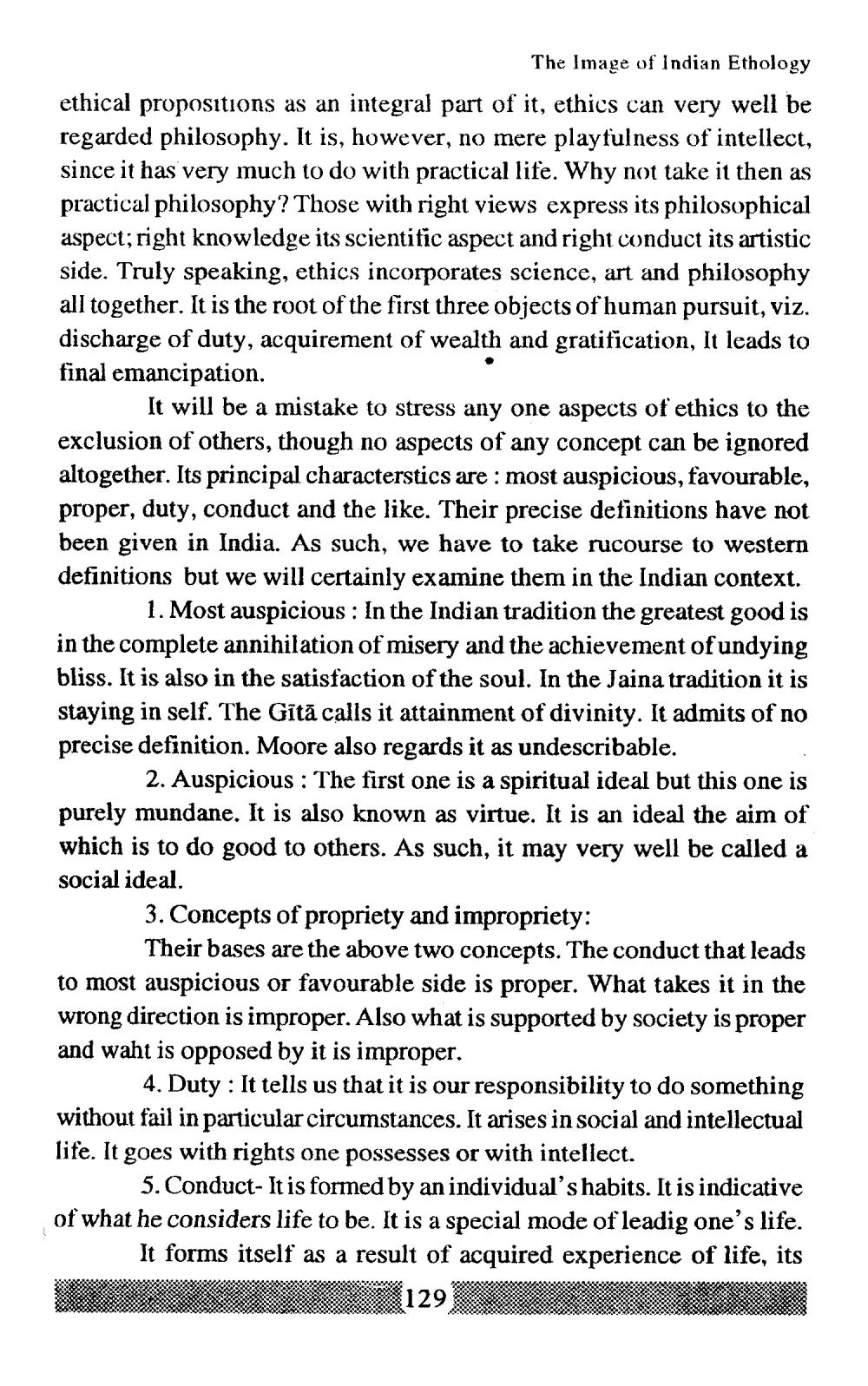________________
The Image of Indian Ethology ethical propositions as an integral part of it, ethics can very well be regarded philosophy. It is, however, no mere playfulness of intellect, since it has very much to do with practical life. Why not take it then as practical philosophy? Those with right views express its philosophical aspect; right knowledge its scientific aspect and right conduct its artistic side. Truly speaking, ethics incorporates science, art and philosophy all together. It is the root of the first three objects of human pursuit, viz. discharge of duty, acquirement of wealth and gratification, It leads to final emancipation.
It will be a mistake to stress any one aspects of ethics to the exclusion of others, though no aspects of any concept can be ignored altogether. Its principal characterstics are : most auspicious, favourable, proper, duty, conduct and the like. Their precise definitions have not been given in India. As such, we have to take rucourse to western definitions but we will certainly examine them in the Indian context.
1. Most auspicious : In the Indian tradition the greatest good is in the complete annihilation of misery and the achievement of undying bliss. It is also in the satisfaction of the soul. In the Jaina tradition it is staying in self. The Gītā calls it attainment of divinity. It admits of no precise definition. Moore also regards it as undescribable.
2. Auspicious : The first one is a spiritual ideal but this one is purely mundane. It is also known as virtue. It is an ideal the aim of which is to do good to others. As such, it may very well be called a social ideal.
3. Concepts of propriety and impropriety:
Their bases are the above two concepts. The conduct that leads to most auspicious or favourable side is proper. What takes it in the wrong direction is improper. Also what is supported by society is proper and waht is opposed by it is improper.
4. Duty : It tells us that it is our responsibility to do something without fail in particular circumstances. It arises in social and intellectual life. It goes with rights one possesses or with intellect.
5. Conduct. It is formed by an individual's habits. It is indicative of what he considers life to be. It is a special mode of leadig one's life.
It forms itself as a result of acquired experience of life, its




